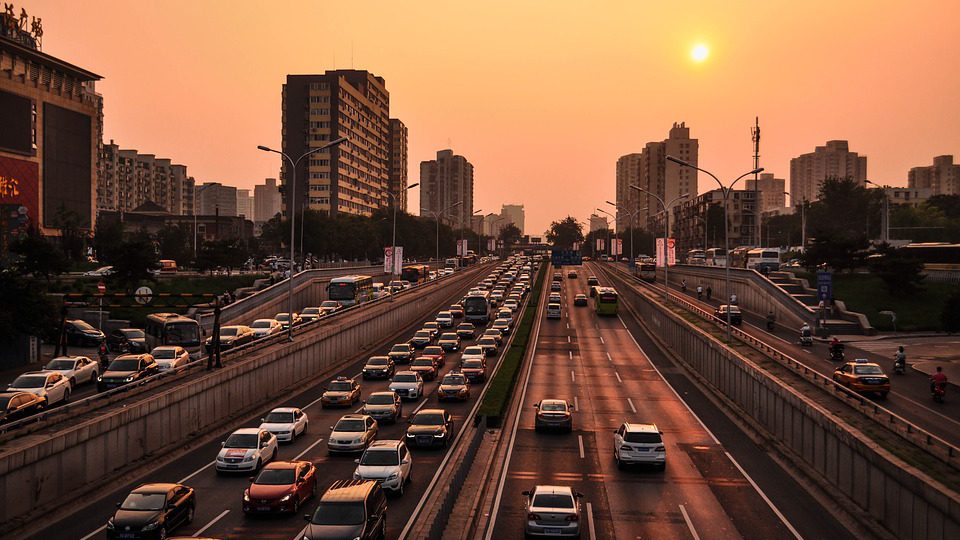

As the coronavirus pandemic persists and people are trying to co-exist with it, a question arises for the transport industry, will people change the way they commute? COVID-19 has impacted our decisions and there has been a clear shift visible in the mobility behaviour, for instance,
- Working from home was considered as a solution against traffic congestion since the 1970s however, it has never been taken seriously till the pandemic happened
- Walking and Cycling were encouraged as active transportation modes, however, due to lack of safe infrastructure, their use as alternatives have been delayed among the public
- The sales of EVs have been supported by giving subsidies, yet they remained as a small percentage as far as the total vehicle sale is concerned
All of the above began to change in 2020. Work from Home became a thing and the sale of Bicycles skyrocketed. The sales of EVs did not drop in comparison to traditional vehicles. The unavoidable question is: Are these changes the beginning of a new future or simply a fascinating trend? In this blog, several future scenarios have been outlined that may be the result of changes we saw in 2020. This is what mobility might look like in the next few years:
- Travelling Perception Has Changed
Many conventional vehicle sales centres have shut down last year because of the pandemic. However, they were replaced by the new electric carlines as governments came forward with the plans to rule out petroleum and diesel-based vehicles. The step definitely accelerated the end of the internal combustion engine in everyday vehicles.
Check the live location of your vehicle with LocoNav’s Vehicle Tracking System!
The customers have also welcomed the EV revolution with open arms and so did the tech firms and automakers. The comprehensive EV infrastructure has swiftly replaced tax breaks, charging stations and connected services, thus making way for a greener mode of transportation.
The city centres likewise look very different nowadays. Roads once packed with vehicles are a lot calmer and cleaner as many municipalities have banned the private vehicles and people are moving from suburbs to cities. From e-scooters to robotaxis, people have now far more mobility options to choose from, in the downtown areas.
We’ve become more careful about our travel decisions, as well. Earlier, a lot of us didn’t think even twice before going on a trip or taking a car to go to a meeting or even a nearby store. Now, people give a second thought of whether they really need to travel or not. Moreover, this additionally implies that we have gone back to utilizing public transport instead of single-occupancy vehicles.
- Business Carrying out Differently Than Usual
In 2020, we found that working remotely and distantly isn’t just profitable for most organizations, it’s also beneficial for both employees and employers. Hence, the organizations did not return to the usual 9 to 5 working scenario even after the lockdown ended. This move has drastically decreased congestion levels and there’s no longer a thing as peak hour traffic now. Also, the governments need not to constantly spend billions to expand the already there road infrastructure. To put it simply, there’s definitely less stress, lesser traffic congestion and fewer emissions, making our roads greener and safer.
- Lesser Emissions & Dependency on Fossil Fuels
A notable drop in emissions was observed in 2020. During the pandemic, many of us felt how better the environment is when we travel less and there are lesser emissions from fossil fuels. Governments also announced strict carbon-reduction measures to meet the Paris Agreement on environmental change. The active regulators have also tightened the CO2 regulations and offer incentives on the carbon-free mode of transportation. 2020 has taught that it is possible to work together and protect the planet for a better future.
- Choosing the Future Is Now In Our Hands
The potential situations mentioned above would surely be executed in a few years. It is now in our hands to understand what is important to us and then choose what kind of future we need for ourselves and future generations. This pandemic is a crossroad, and the route we take today will shape the world we live in tomorrow. We can either choose to return to how things were before 2020, or we can take a different path to a safer, cleaner, and greener world.
Quick Read: Steps To Identify A Vehicle Number Plate Owner In Nigeria
Quick Read: Green Hydrogen Can Be Less Expensive Than Diesel by 2050